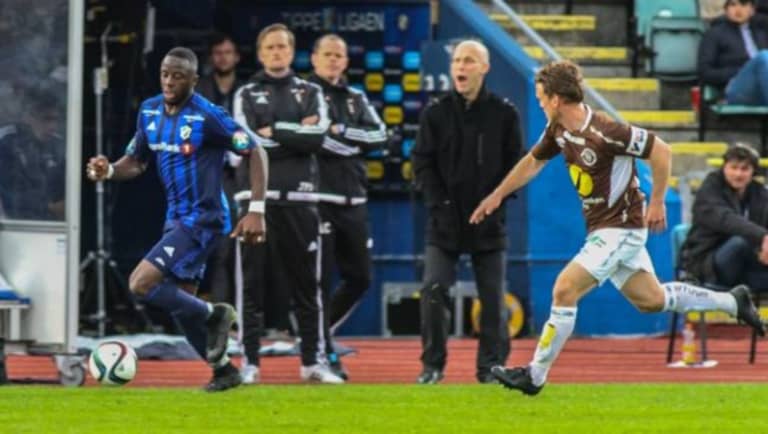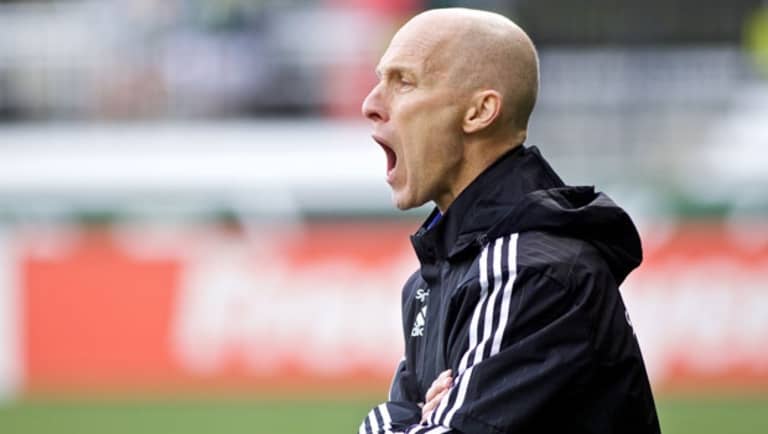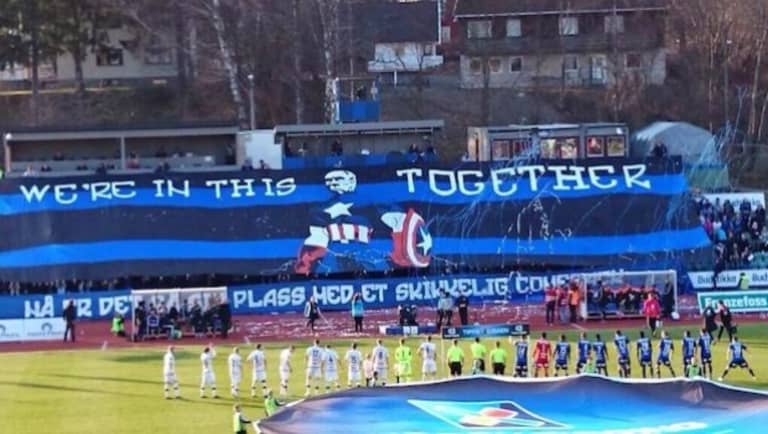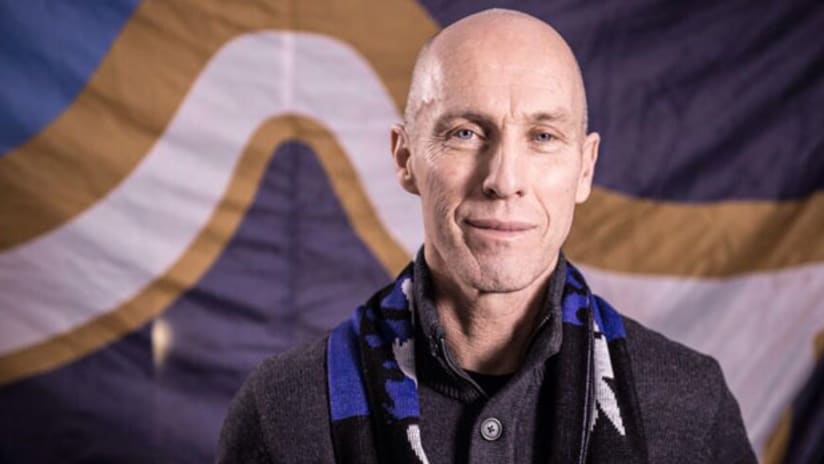In a tiny suburb west of Oslo, in charge of a team most experts picked to finish at or near the bottom of the Tippeligaen, Bob Bradley is – once again – working miracles.
Not that the 57-year-old American would ever use that word himself. Nor would he ever dare claim the credit for the Cinderella story Stabaek IF – led by a young core and a handful of reclamation projects that have paid immediate dividends – have spun 12 games into the Norwegian season.
Just three years after financial crisis saw the once-proud club humbled, then relegated – a dire situation they’ve yet to fully recover from – Stabaek sit second in the Tippeligaen (8-2-2, 26 pts), just three points back of perennial contenders Rosenborg with the best defensive record in the top flight.
Nobody saw this coming. Not even Bradley, who felt his team had promise and told them early on that they had a “different potential” from the squad that finished ninth in the 16-team league last season, his first in Norway, a distant 32 points behind champions Molde.

“We’re a big surprise,” Bradley tells MLSsoccer.com in a phone interview at the end of May. “A lot of the experts, given that we had lost players, picked us to finish at the bottom again. But now that we’ve had a good start, the media attention has been, in many ways, overboard. It’s nice for a small club.”
Of course, it’s nice for Bradley, too, though in typical fashion he’s quick to point out he “doesn’t give much thought” to anything but the next game.
But like his players, who would love nothing more than to parlay a good season with Stabaek into a move up the European soccer ladder, Bradley’s playing the game with an eye on the pyramid as well. He’s nothing if not self-aware.
He readily admits “there are always talks” and says there have been a few different discussions in the past six months, but emphasized he remains excited about the task at hand at Stabaek, a job many thought beneath the World Cup veteran when he signed up in January 2014.
Still, for many in Norway and the United States, the question remains when, and not if, Bradley will leave for greener pastures.
“It’s the question I get asked more than any,” he says. “I laugh a little bit because when I was in Egypt, everyday virtually it was, ‘Why are you still here?’ When I first got to Stabaek, the question was, ‘Why did you come here?’ And now the question is, ‘When are you leaving?’”
One can’t help but wonder, when will Bradley move up the ladder? More importantly, who will give him that opportunity?
After all, this is a man whose resume features close to 20 years of professional head coaching experience, a Gold Cup title, World Cup knockout stage appearance and near-miraculous World Cup qualifying campaign with Egypt as the country went through the violent throes of revolution.

Perhaps even more importantly in the cutthroat world of European soccer, Bradley’s proven he can adapt quickly and succeed on a budget. Surely some continental club could tap into that experience, right?
“There’s no answer,” Bradley says. “As much as the hope is that somebody might notice and there might be a next challenge along the way, you can’t sit around and wait for phone calls. I signed a two-year contract. It was a good project and the plan was always that we would try to show people the football we could put together.
“Honestly, for myself, it was to come here and show people my work again and to prove myself. To be someone that maybe when scouts show up here, the word gets back to their clubs and then who knows, somebody thinks it fits with what they need.”
In the meantime, Bradley does what he’s always done at all his stops – Ohio, Virginia, Princeton, D.C. United, Chicago Fire, MetroStars, Chivas USA, the US national team and Egypt. He works – often tirelessly and obsessively – to make his team, his players and himself better every day.
And despite the fact that his contract is up after this season, that attitude applies to Stabaek as an institution. Although the winter’s transfer dealings have paid off so far, Bradley doesn’t hide his frustration at behind forced into a holding pattern early in the window as the board issued a sell-first, buy-later mandate.
“It’s a little bit of always doing today just to get to tomorrow,” Bradley says of the club’s mindset on the business side, one that has, at times, hamstrung his efforts to build the squad. “I keep challenging the management and the board that that’s not the way to operate in the long term. You’ve got to have a little more vision. Whether I’m here or not, there are certain decisions that need to be made more for a year or two years down the road.”
As he’s proved over the years, vision isn’t something Bradley lacks. Neither is perspective or a willingness to take risks in the name of progress – collectively or personally.

So despite being linked to clubs such as Aston Villa, IFK Goteborg and Aalborg – with club chairman Espen Moe doing his best to fight off suitors and sporting director Inge Andre Olsen calling him “the best coach that has ever been here” – Bradley continues on the path in front of him, splitting his time between building Stabaek for present and future success while pursuing his UEFA Pro License, a requirement for most top-flight managers on the continent.
He expects to finish the process in January 2016, and though Bradley says he hasn’t “faced anything in the course that [he hasn’t] seen for real,” he appreciates the opportunity to hone his craft and build relationships within the Norwegian coaching community.
“I have some of the other guys in Norway say to me, ‘With your experience, why are you doing this now?’” Bradley says. “I say, ‘It’s part of the deal if you want to work in Europe.’”
And there’s no question that’s what Bradley wants, what he wanted when he turned down the Vancouver Whitecaps’ advances before taking the Stabaek job. Now it’s simply a question of whether someone will give him not what he deserves, but what he’s earned.
“It’s not just going to be handed to you. And maybe that’s the bottom line when it comes to Europe,” Bradley says. “For American players and coaches, proving yourself over here isn’t always easy. You have to get your foot in the door. In some cases you might not get the best opportunity, but you just say, ‘Look, I’m going to do it.’”











